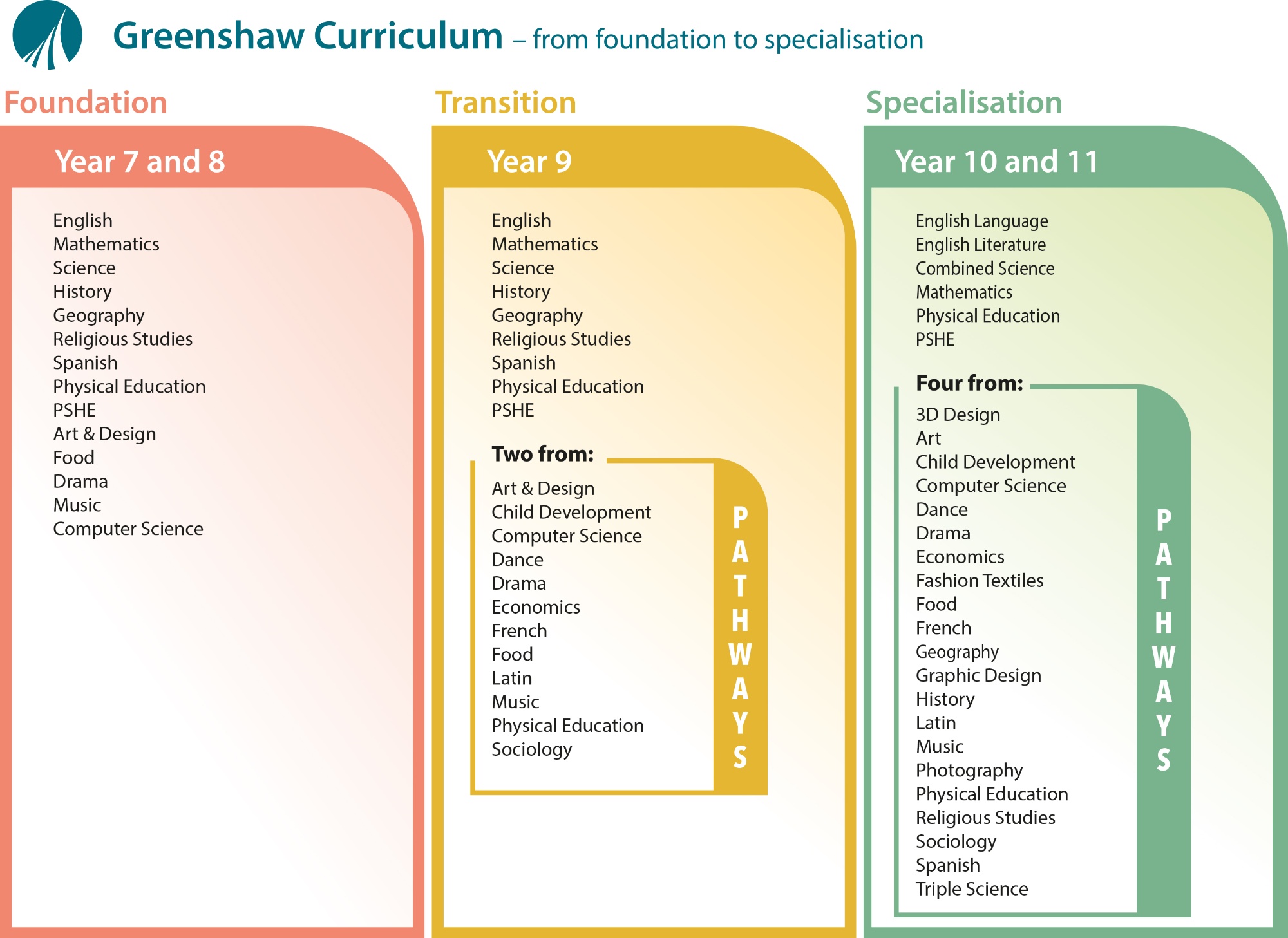Curriculum Overview
Curriculum purpose
School should give children the wherewithal to take part, to make choices, to understand, to be free to think, to explore, to test their values and to find meaning in their lives.*
Education is about securing the best possible outcomes for young people, which includes achieving success in public examinations, but also involves the development of the individual and their ability to lead happy, fulfilled lives and to take an active and purposeful role in society.
Our curriculum identifies the powerful knowledge and skills that our students are expected to learn and the transformative experiences that they will undertake in order to grow and be successful in their lives. It is structured in three distinct phases designed to take students from the foundations of Year 7 through the transition year at Year 9 and the increased specialism from Year 10 and 11.
Our values
Our curriculum is underpinned by three core values:
- We believe that knowledge is powerful and therefore that all students, regardless of their background or ability, have an entitlement to that knowledge.
- We believe that language unlocks the world and therefore that regular opportunities for extended reading, writing, oracy and vocabulary must be prioritised for all students.
- We believe that actions have consequences and therefore that our students should learn habits of kindness, equality, self-regulation and acceptance of personal and collective responsibility.
Structure of the curriculum
These values inform the structure of our curriculum.

In order to optimise the acquisition of powerful knowledge, all students are exposed to a broad and balanced curriculum. In the foundation phase (Year 7 and 8), they engage with fourteen different subject disciplines including MFL, drama, music, art, computer science and religious studies.
This expansive approach continues into the transition phase (Year 9), with students progressing in a core of nine subjects including Spanish, religious studies, history and geography, but also adding two further options from a list that includes economics, Latin, child development and sociology.
In the specialism phase (Year 10 and 11), students refine their studies to focus on English, maths and science, plus four option subjects which must include at least one of history or geography. We encourage students to pursue the English Baccalaureate as a signifier of breadth but it is not compulsory, because breadth can be achieved in different ways and students have the right to craft a curriculum that is most appropriate for them.
Please contact Miss Weatherhead, Assistant Headteacher, for more information about the curriculum.
To view our Curriculum Statement, please visit our School Policies & Document page.

